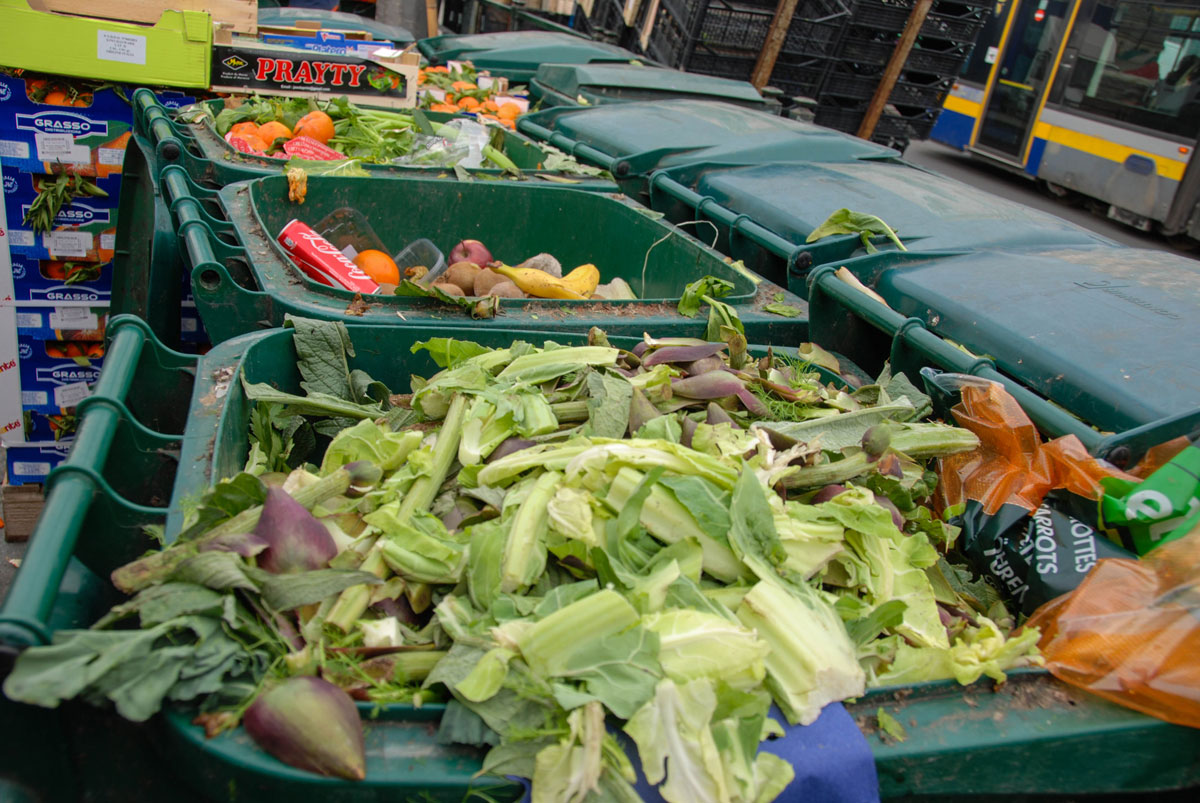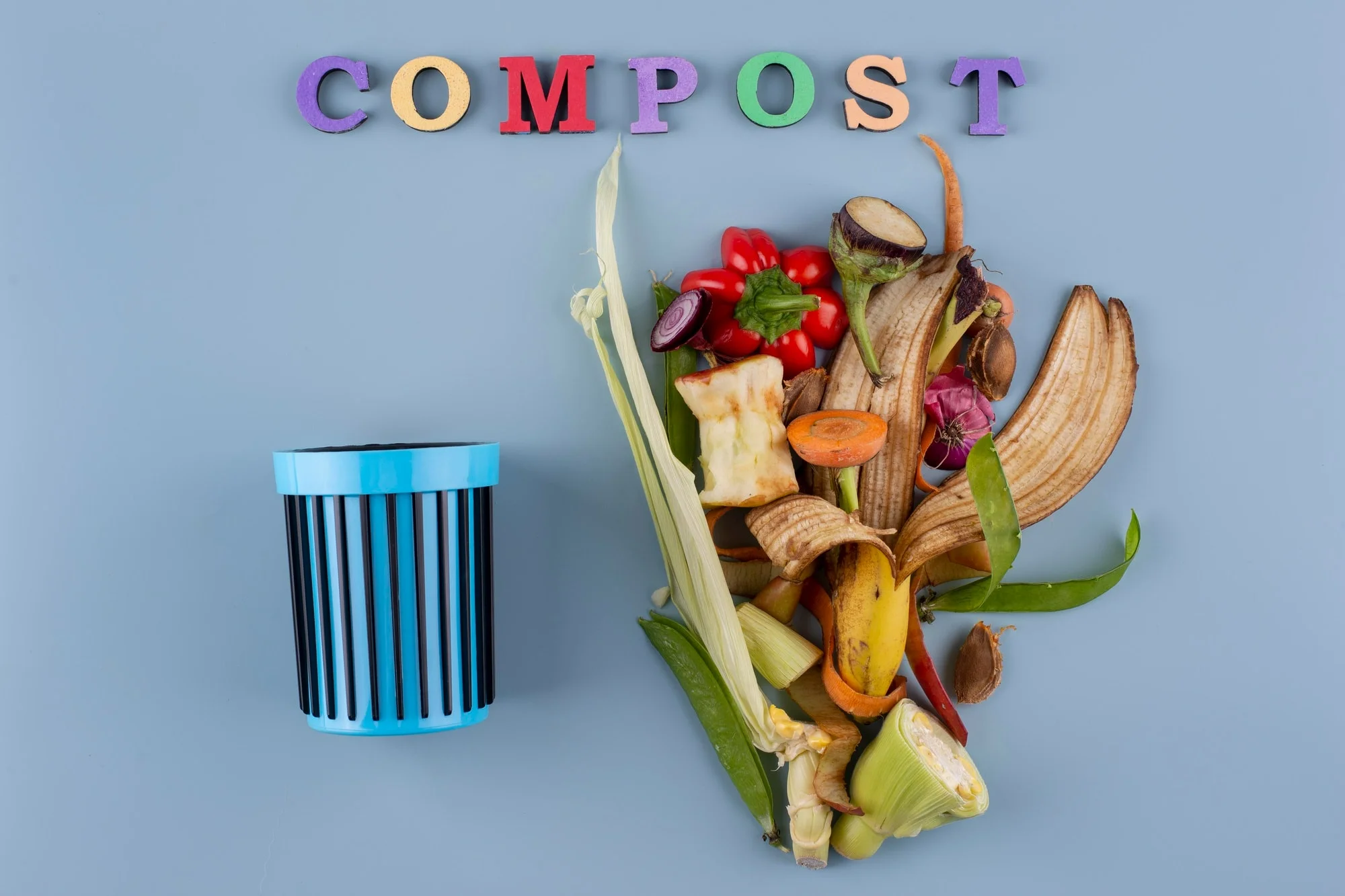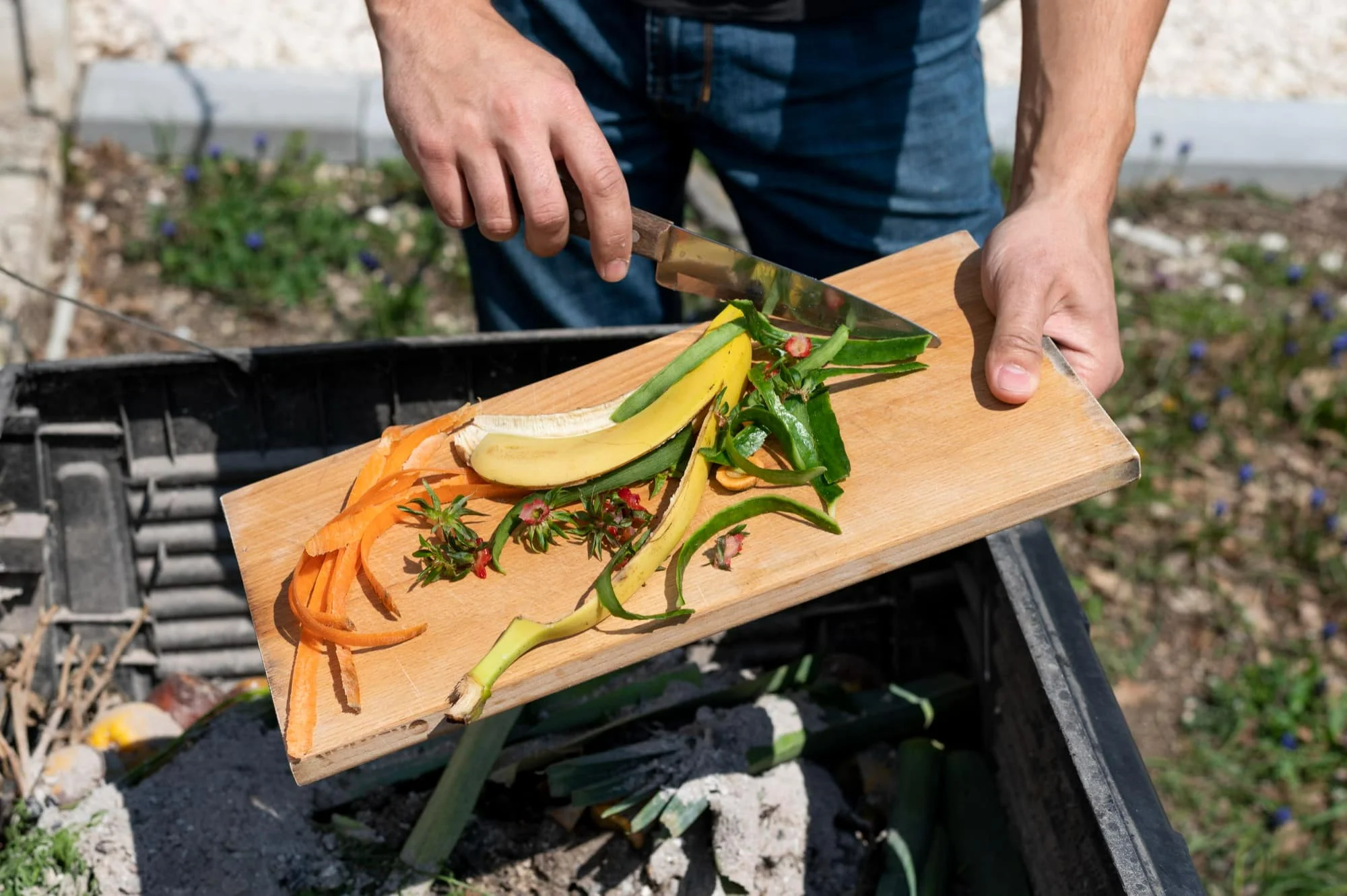The UK food service industry produces an estimated amount of 400,000 tonnes of avoidable food waste annually. To ensure food and other debris your restaurant generates are appropriately managed and disposed of, restaurant waste management is of the utmost importance.
As a restaurant owner, you have a great deal of responsibility to ensure you are not adding unnecessary waste to our landfills. You can strive to create as little environmental impact as possible in your business, and understanding key differences such as compostable, biodegradable and recyclables (often used interchangeably) can help.

Recycling Waste in the Restaurant Industry
Recyclables can be reused, and the energy required to extract and manufacture virgin raw materials can be reduced. Restaurants play a big part in this because the industry is so vast – every little step can help save our planet.
Many people only think of food waste in the restaurant and hospitality industry, but as those in the industry know, it is much more than that. All of these restaurant items can be recycled:
- Waiter’s paper notes
- Leftover cans
- Paper napkins
- Paper receipts
- Old steel cooking equipment (and other steel items)
- All other types of paper containers!
What are the Differences Between Compostable, Biodegradable and Recyclable Waste?
Though they are often used interchangeably, key differences change how products are disposed of and how long they degrade. Learning what they are can help us understand why they are different from one another.
See all our recyclable waste services here
What is Recyclable Waste?
Recycled waste is disposed of materials which can be converted into something new so they do not end up in landfills. However, there can be limits on how many materials can be recycled; it should not be assumed that items can be recycled indefinitely.
Ecover, an eco-cleaning brand, embarked on a study which found two-thirds of customers in Britain try to recycle as much as possible, although it was also found that 37% admit that they do not always know whether things can be recycled or not. One person expressed annoyance with laundry detergent bottles being with recyclables, but not the cap. With this battle going on in household waste disposal, restaurants and other businesses can help by adhering to the recycling rules as closely as possible to narrow down avoidable waste.
There are many recycled materials; they can include:
- Cardboard
- Glass
- Paper (recycled newspaper or ordinary recycled paper)
- Metal (such as aluminum cans)
- Food waste (for green waste bins)
- Plastic (such as laundry detergent bottles or other hard plastic)
- Electronics
- Textiles
- Garden waste

Ensure you are not putting non-recyclable waste in your bin to be collected, such as soft plastics like shopping bags or sweet wrappers. These packaging items can negatively affect the other methods used in the supply chain when processed at a recycling center.
Compostable and biodegradable waste can also be counted as a form of recycling. It might be easier to see recycling as an umbrella term for how recyclable materials can be reused or returned to the ecosystem without ending in landfill sites.
Luckily, in these modern times, the recycling industry has developed a recycling program to ensure as much recycled material ends up in the recycling process. They ensure the trash they collect is still upheld in rigorous quality checks and is processed correctly, so they are as good as any raw material items made. Having new raw materials created, such as plastic bottles, aluminium cans, or other new products in the steel and timber manufacturing industry, can seriously affect our planet negatively.
Why is Recycling Waste So Important?
It takes more energy to create new products than it does to send recycled materials to a recycle plant. Examples could include aluminum cans or cardboard. It still takes less energy for them to be recycled, collected, and processed than manufacturing new products. It is helpful in other areas as well. If we reuse the materials we already have, the level of demand can still be met, and less money is needed when buying recycled containers compared to virgin ones. As long as the demand for cans and paper is still met, many people do not care whether it is recycled or not. But the best reason for recycling is that collected and recycled cans and paper containers can help save our planet!
What is Compostable Waste?
For waste to be deemed compostable, it has to meet certain criteria. This means waste needs to be made entirely of natural materials, so they do not produce any toxic residue when they break down. Commercial composting is possible and is usually conducted in a controlled environment in an industrial composting facility.

What is Biodegradable Waste?
Biodegradable is when something can be broken down naturally. This is usually achieved with bacteria or fungi in certain conditions – precisely temperature and humidity. The term is relatively vague, so it can confuse individuals, especially when discussing the time it takes for different products and waste to decompose.
Unfortunately, some companies label their products ‘biodegradable’ because many things will eventually break down naturally. An example can be a banana – it can take up to two years for the skin to break down entirely. A worse example of this is plastic. We all know about the controversy of plastics in our products nowadays (and for a good reason). Companies that advertise their plastic products as biodegradable often require specific conditions, as mentioned above. However, they can still take hundreds of years to break down, and when they do, they can also release harmful greenhouse emissions if left in a landfill.
Biodegradable products will decompose much quicker than non-biodegradable ones, which is generally a more environmentally friendly option, but in comparison to recycling and composting, many opt for biodegradable last.
What is the Difference Between Compostable and Biodegradable?
Primarily, the difference between the two is how they break down. Biodegradable is any material that can degrade in any environment, a relatively vague term discussed above. On the other hand, compostable waste is only made up of organic matter.
As of right now, compostable and biodegradable plastics cannot be recycled, and if disposed of in a standard recycling bin, they could potentially contaminate the process. As technology advances, efforts are underway to develop compostable and recyclable solutions.
Are Recyclables the same as Compostable Waste?
The short answer is no. Intermixing compostable plastics with petroleum-based plastics that are not compostable can cause contamination and disruption in the recycling stream. Compostable waste should be disposed of in green waste bins or with general waste.
Take a look at our wheelie bin services.

What Should I Do With My Recycling Waste?
After learning the differences between compostable, biodegradable, and recyclables, you are more equipped to know what to do with your restaurant waste. At Inspire Waste Management, our commercial waste collection services are vast, and we can help you understand what services could be best for you with our waste consultancy option. We offer many commercial wheelie bins to fit whatever waste you need to dispose of; this way, it is easier to organise your waste (including recycled materials) and get on with the rest of your business! Our commercial recycling services should give you peace of mind about your impact on natural resources for the planet as well as offer an easy system of collections for recycled materials to go to your nearest recycling location or drop-off centers.
We believe we can help your business adhere to the best and most environmentally friendly recycling program, saving a significant amount of valuable resources rather than ending up on curbside collection for the landfill.
Contact us today for more information.





